This post is a long time in the making, since learning that my cousin (pictured above) would be competing in the Mrs. California America pageant in the summer of 2021. I knew she was competing again this summer, so I decided to wait until then to write about my experience attending. I wanted to know what she would say to those who believe that Christians should not participate in pageants. I was surprised when she explained that she was not the only Christian, that even a pastor’s wife was competing. This made me curious to learn more about Christian involvement in pageants. I discovered that Christian leaders have played a significant role in the Miss America pageant since its beginnings in 1921.
A Brief History
Quite possibly, the first ever pageant in recorded history is from the Bible, when Esther competed to become the Queen of Persia:
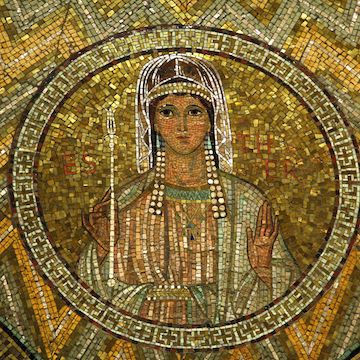
“Then the king’s attendants, who served him, said, “Let beautiful young virgins be sought for the king. Let the king appoint administrators in all the provinces of his kingdom, and have them gather all the beautiful young virgins to the citadel in Susa, into the harem, under the custody of Hegai, the king’s eunuch, who is in charge of the women; and let their beauty preparations be given to them. Then let the young woman who pleases the king be queen in place of Vashti.” This pleased the king, and he did accordingly.” – Esther 2:2-4 AMP
When the Miss America pageant began, however, the Christian response was opposition. This was particularly true of the Baptists, Quakers, and Methodists. They believed participation in pageants was detrimental to young women. Southern Baptists condemned pageants for lowering “true and genuine respect for womanhood” in a 1926 resolution.
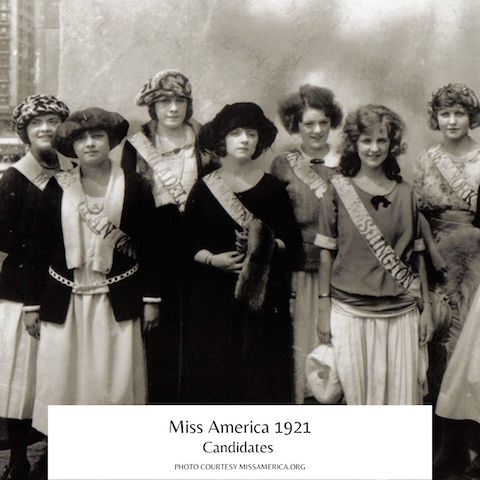
Christians eventually succeeded in shutting it down for five years from 1928 to 1932. In a genius move, pageant officials approached a Christian in 1933 to give the pageant an image makeover. When the Miss America Pageant returned in 1935, Southern Baptist Lenora Slaughter had made the following changes:
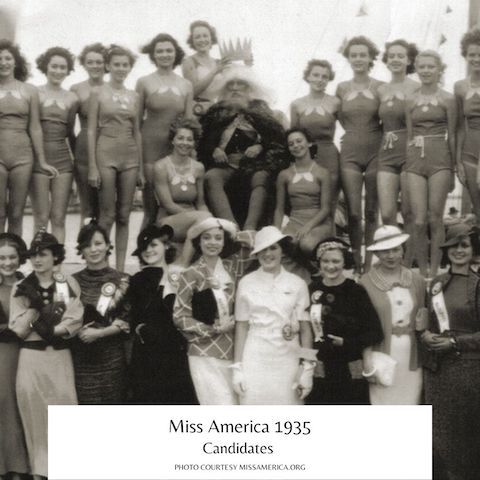
- banned the term ‘bathing suit’ in favor of swimsuit to shift the focus of that portion of the competition to the athleticism of the candidates
- added a talent component
- instituted scholarships for winners
- banned candidates from visiting bars and nightclubs
- established curfews for candidates
- forbade candidates from speaking to any man alone
- invited fellow Christians to serve as hostesses, judges, and board members
These changes had the effect of marginalizing the voices of Christians who remained in opposition of Christian participation in pageants.
The partnership between Christians and the Miss America Pageant became solidified when Miss America 1965, Vonda Kay Van Dyke, became the first contestant to speak openly about her faith when asked a question about her view of the Bible. Prior to that, it was against pageant rules. The receptive public response encouraged pageant officials to drop the rule against religious expression.
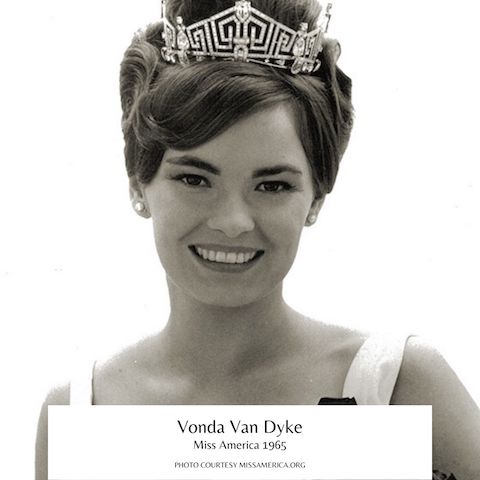
Pageant Preachers
Christians have a long history of competing in beauty pageants, and win quite often. Their reasons are often inspired by their faith. Winning the title of a major pageant such as Miss America gives the candidates a platform to share their faith and minister to others.
Terry Meeuwsen, Miss America 1973, has written four books including, Near to the Heart of God: God’s Words of Encouragement for Women (1998) and The God Adventure (2005). She is currently co-host of the Christian Broadcast Network’s 700 Club.
Miss America 1980, Cheryl Prewitt, is a born-again Christian who has shared her testimony of her miraculous healing after a car accident left her with one leg two inches shorter than the other. “People ask me how I can wear a swimsuit [in the pageant] and be a Christian. I tell them, ‘If you’d been a cripple for six years, you’d love to wear a swimsuit.’” She used her platform to preach the Gospel, stating, “…this is the world where people need to hear that God loves you. They hear it at church. They don’t expect to hear it where I am.”
In her quest for Miss America 1990, Debbye Turner was advised to “tone down the Jesus stuff.” She did not and went on to win the crown. She is the author of Courageous Faith: A Lifelong Pursuit of Faith Over Fear (2021). She is also a veterinarian, a TV anchor, and a talk show host.
Heather Whitestone, Miss America 1995 and the first deaf Miss America, used her platform to speak of her close relationship with God. She is the author of Believing the Promise: Daily Devotions for Following Your Dreams (1999), Let God Surprise You: Trust God with Your Dreams (2003), and Heavenly Crowns: Striving for a Godly Life in the Midst of Daily Struggles (2004).
The sixth African American to win the crown, Erika Harold, Miss America 2003, used her reign to advocate for sexual abstinence despite pressure from pageant officials. She is a self-described politically conservative Christian who ran on a chastity platform when she was crowned Miss Illinois. She earned her J.D. degree in 2007 from Harvard Law School and is an attorney and politician.
Lauren Nelson, Miss America 2007, co-founded Unveiled Ministries. Its mission is to help young women become confident women of God. She speaks at women’s retreats and has written two books, God, Girls, and Getting Connected: Spiritual Apps for a Teen’s Life (2012) and God, Girls and Guys: Answers to Questions on Dating and Relationships (2012).
Christian Argument Against Pageants
Ironically, Christians and feminists both had similar concerns about the effects of pageants on the image of women. Christians are known for promoting such values as modesty and for defining beauty by what is on the inside. In contrast, pageants judge beauty by what is on the outside and encourages comparison and the exalting of self. It is no surprise that there remains today some disapproval of pageants, particularly when it comes to the swimsuit competition.
When asked, the general consensus of Christian candidates is that the swimsuit competition is not objectification but rather an exhibition of the bodies God has given them. Further, the Christian argument for pageants is that it is no different than any other competition. If competition is okay for Christians in sports, why should it not also be okay for competition in beauty? Competing in beauty pageants provides the same opportunity for community involvement and for learning self confidence as competing in sports does.
Decades later, feminists had similar arguments. Their protests against pageants weren’t nearly as successful as were the Christians’. Christians came to embrace pageants as an upholder of femininity, a counter to feminism. The Christians who saw the merits of pageants but still had concerns about modesty and the purpose of beauty pageants, created Christian pageants.
Miss Christian America replaced the swimsuit competition with sportswear and candidates have to be active in ministry as well as have letters of recommendation from her leaders in her church, including from her pastor. Their purpose, in part, is to promote a Godly lifestyle for women. And then there is Christian Miss, whose purpose is to provide a platform for candidates to shine as righteous role models who glorify God with their good deeds.
What Do You Think?
Should Christians participate in beauty pageants? As I watched my cousin compete, all I thought about was how much courage she had and how inspiring she was. None of my attention was on the things she had going on the outside. Her inner beauty was what really took center stage. What are your thoughts? Please comment below.

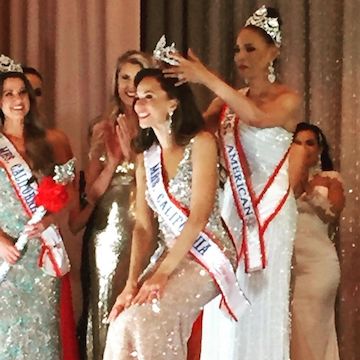










Hi Robyn,
This blog post is so very exciting. It’s wonderful to see Jesus Christ continues to be woven throughout pageant history. I absolutely love this and can’t wait to share it with everyone. Beautiful, insightful, and encouraging!!!
Thank you, Andrea! I found it to be exciting, too! I am so glad you are encouraged. 🥰🤗